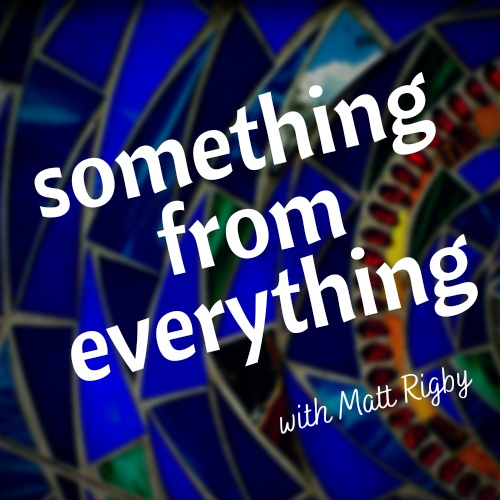
I’ve been starting fires … er, lighting candles.
This year, I’ve been observing and celebrating the Advent season. Starting on the last Sunday in November, we’ve gathered our immediate family around a glass lantern, and lighting candles placed within it. By December 25th, we will have lit five candles, each candle representing a different theme.
Advent simply refers to the arrival of something prominent. In the wide Christian tradition that I am most familiar with, people have gathered together for generations to light candles, reflecting on the themes of hope, peace, love and joy. Within this tradition, many have developed a very specific way of observing this. Specialty advent candle holders, specific colors of candles, an order to the themes with accompanying readings and prayers.
Like many before me, this season’s Advent has become a special and sacred time to me.
Also, by all accounts, I’m doing it wrong.
We have no specialty advent holder. We even forgo the different colored candles (purple and pink don’t match the rest of our holiday decorations). Instead we place uncoloured beeswax candles into our lantern, and each Sunday, we complete a hurriedly internet search to ensure that we are focused on the correct theme.
While Advent is not a new tradition, it is new to me. For much of my life, Advent has been much more about chocolate calendars than Christ. Even now, I have a complicated relationship with faith. In a household that does not attend church services, reading from the Bible feels awkward and forced. But we take our place in the tradition anyway. We discuss each theme with a wide and generous description. When my son says that getting Taco Time on Tuesdays brings him joy, I don’t correct him (why would I? There are few things in life more joy-giving than tacos).
It took me a long time to take part in this tradition I’m uncertain I belong to. To light the wrong candles. To gather my family around and discuss themes with no wrong answers. To read passages that give me both joy and doubt. It took a long time to feel comfortable doing it wrong.
When it comes to the winter holiday season, there are a lot of expectations. If you belong to a religious tradition, you may feel required to observe: the lighting of advent candles, kinara, or menorah; the decorating of a ficus tree; and the attending of nativity plays or Christmas eve services. But even if you are not religious, this is a season loaded with traditions both personal and corporate: Christmas vacation (both the excursion and the movie!), baked goods, cookie exchanges, holiday staff parties, card and gift exchanges, pictures with Santa, family gatherings and huge, extravagant meals together.
This year, nearly every event I’ve just mentioned has had to be tailored, adjusted, or cancelled outright. When so many of our long held traditions are suddenly and unwantedly upended, we might feel like we are “doing it wrong”. We may even feel nostalgic for the events that we dreaded in years previous (here’s looking at you, spouses’ staff Christmas party…).
The winter traditions we celebrate have a power to ground and centre us. But like all traditions, they have a rhythm, a certain order, a correct way to observe them. If you always celebrate Christmas Eve in a church, or always join your extended family for turkey dinner on the 25th, this season is going to feel off. It’s going to feel less traditional. It’s going to feel like you’re doing it wrong.
But you can do it. Ask the person who works out of town. Ask the person who works at the restaurant open on Christmas day. Ask your local shift worker.
As a health professional working shift work, I’ve been ‘doing it wrong’ for years. Long before I lit my first advent candle. For more than 20 years, I’ve been a shift worker. That means I’ve repeatedly been an inconsistent plus one at my partner’s staff parties. My children often have only one parent cheering them on at elementary school Christmas concerts. I’ve left a seat empty at numerous family meals. I’ve woken my children up at 5am so I can hurriedly watch them open gifts before heading into work, or asked them to (impatiently) wait until 8am if I’m just finishing up a night shift.
And all those Christmases? All those modified holidays traditions? Still memorable, still meaningful.
These days, I’ve come to appreciate the grounding gift that tradition is. A rhythm that I can fall in step with. This candle, this theme, this reading.
But that gift given should not become a weighty, cumbersome thing. The winter traditions we have participated in are for our grounding, our belonging, our adoration and enjoyment. At times when these traditions have to be adjusted or abandoned all together, then we make peace with ‘doing it wrong’. We accept them for the gift they are. We take what works. We leave the rest.
And we acknowledge and allow our discomfort. Our longing for rhythm.
If you’re feeling like you’re missing out, that’s okay. If you feel exhausted doing half of what you normally do this time of year, that’s okay. If a season without seeing family and friends leaves mourning, that’s okay.
That’s okay, that’s okay, that’s okay. Repeat it as often as you need until it’s true. Permission slips, all around.
You can do it wrong, and still participate in a tradition.
You can do this wrong, and still enjoy it.
You can do this wrong, and still make it memorable and meaningful.
You can do this.
